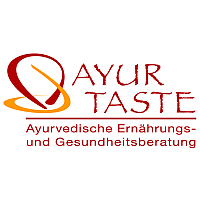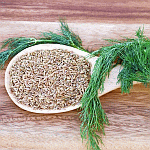Ayurveda Education: Realities & Challenges
20.09.2010 | Since last few decades Ayurveda education has become a very important activity and business in western countries. Around 20 – 25 years ago there were only a few institutions in Europe and North America that were offering education courses in Ayurveda. deutsch
Today however there are numerous academies and Ayurveda centers where the local people can learn Ayurveda. Depending upon the type of institution one can find different types of Ayurveda courses being offered. These courses naturally differ in their durations. There are weekend courses as well as long term curricula which may even run for a few years. I have lectured in all such types of courses and most of the times it has given me great pleasure. However when I analyze the quality, duration, contents, level and objectives of these curricula and the expectation of the participants, I confront with some such realities which cause me lot of worry. In the following paragraphs, I would like to discuss few such points.
Duration – Since Ayurveda is as extensive as the modern medicine, studying Ayurveda at an Indian university takes many years. Only after successfully passing the pre-university examination a student can get admission to Ayurveda education. The course of ‘Bachelor of Ayurvedic Medicine & Surgery (BAMS)’ consists of 9 semesters followed a year long internship. If the student wants to specialize further in some branch like internal medicine, Pathology, Panchakarma etc, then he has to study 6 more semesters and obtain MD degree in Ayurveda. In these bachelor and master degree courses, a student obtains deep knowledge of Ayurveda & Yoga as well as the necessary knowledge of modern medicine, i.e. everything that is required for a successful Ayurvedic practice. The students also need to read and study the original Sanskrit texts of Ayurveda & Yoga and learn certain verses by heart. As compared to this, the durations of Ayurveda courses offered in western countries are much shorter. In such courses the participants cannot expect to gain very deep knowledge of Ayurveda. However many times these courses are named as ‘Ayuvreda Specialist’, ‘Ayurveda Master’, ‘Ayurveda Doctor’ etc. The people who do not know, how extensive Ayurveda is and how long Ayurveda education takes at an Indian university, get a false impression that the courses labelled as ‘Ayurveda Specialist’, ‘Ayurveda Master’ etc have exactly the same level and contents as the Ayurveda courses in India. However this is not at all true.
Final Exams – The university examination of Ayurveda courses in India are quite strict and extensive and are divided into 3 parts, written, oral & practical. In these examinations students need to answer very complicated questions and display the ability to practically apply the knowledge from the texts. The final examination of ‘Bachelor of Ayurvedic Medicine & Surgery (BAMS)’ course usually goes on for more than a month! Compared to this, the final examinations of Ayurveda courses conducted in the western countries are not so strict and extensive. Many times it’s not really possible to assess how much understanding of Ayurveda the students have really gained and how much they can apply practically. Very often students are issued certificates without really assessing their proficiency. So, without really acquiring sufficient knowledge students become ‘Ayurveda Specialist’ or ‘Ayurveda Master’ etc. And since they remain unaware of the real depth of Ayurveda, after completing such courses students believe that they have gained full knowledge of Ayurveda. However this is nothing but an illusion.
Intelligence Level – A student needs to have a good intelligence level to be able to understand Ayurveda. In India only such students can get admission in Ayurveda course who pass pre-university examination with very good marks. But since the Ayurveda courses offered in the western countries are open to all, the participants have varied levels of intelligence. Some have very high level of intelligence and grasp Ayurveda easily while some have lower level of intelligence and therefore find Ayurveda very difficult. But since the final examinations of such courses are also not very strict and extensive, even such students become ‘Ayurveda Master’ etc. This is not very ideal. Such participants should be allowed only the basic course in Ayurveda.
Objectives – Most of the people who undertake Ayurveda courses in western countries have a plan to start their own Ayurveda practice aftercompletion of the course. However in few weeks or months one can never acquire so much knowledge of Ayurveda that would be enough to run Ayurveda practice. It is possible to learn healing methods like Bach flower remedies and Aroma therapy in a few weeks or months. But since Ayurveda is very deep and extensive, one cannot learn Ayurveda in such a short duration. But many participants do not have this idea. The participants who themselves are from medical or paramedical professions or are naturopaths or masseurs, can learn Ayurveda relatively fast and easily integrate it in their work. But lay people cannot learn it so fast and start with their own practice. They can only use their knowledge in their own lives to protect their own health. And this should be their real objectives.
Ayurvedic Practice – One cannot practice Ayurveda without sufficient Ayurvedic medicines. In India we need more than 500 different Ayurvedic preparations in our daily practice. However since most of these preparations are not available overseas, it is very difficult to cure patients. Moreover Ayurvedic treatments are very expensive abroad and patients need to pay for them from their own pockets. Since Ayurveda is not legally recognized in western countries, one also needs to face many legal issues. In general, we can make two types in Ayurvedic practice:
i) Medical Practice – In this type, one tries to cure the ill patients. But due to above-mentioned problems, this type of practice is difficult overseas.
ii) Wellness Cures – With Ayurveda one can also offer variety of wellness cures. The objective of such cure is not to cure any specific disease but to prevent diseases and support the health of the individual. This type of activity is possible anywhere in world.
The participants of Ayurveda courses must make themselves aware of these realities.
Control & Solutions – From this discussion it is very clear that the quality, duration, content and examination method of Ayurvedic education offered in western countries are needed to be controlled and its students are needed to be informed about certain realities. Many experts in India are sensing such a necessity. It is also very essential to bring a sort of uniformity and discipline in Ayurveda education in west, so that nobody can simply distribute certificates and qualification without imparting sufficient knowledge and training. Otherwise it is manytimes observed that persons with very little knowledge of Ayurveda describe themselves as ‘Ayurveda Specialist’ or ‘Ayurveda Master’ etc. It is really not possible to gain as much knowledge of Ayurveda through such short-term course as one can get at an Indian university. Through such courses only following things look possible:
i) It is possible to teach lay people the basic principles of Ayurveda so that they can take proper care of their own health and constitution and also of their families.
ii) It is possible to produce Ayurvedic therapist or masseurs and physiotherapists can be also trained to become Ayurvedic therapists.
iii) It is also possible to produce Ayurvedic nutritionists and cooks.
iv) It is also possible to train medical & paramedical professionals and naturopaths so that they can give Ayurvedic advice and food tips to patients and prescribe simple Ayurvedic products.
All Ayurveda academies need to accept these realities and bring more discipline as well as clarity in their functioning. It’s a challenge they must take head on. It won’t be good for the future of Ayurveda to produce such workers who don’t possess enough knowledge and experience of Ayurveda and yet describe themselves as ‘Ayurveda Specialist’ or ‘Ayurveda Master’.
Dr. Abhijit Mhalank, MD (Ayu), DYA
42/677 Lokmanya Nagar, Pune 411030
Email – ammhalank@yahoo.com

About the Author:
Dr. Abhijit Mhalank is an experienced Ayurvedic physician and has specialized in Ayurvedic pathology. His several articles and books have already got published in various languages. He has also developed a CD ‘Encyclopaedia Ayurcedica’ which is a pharmacopoeia of Ayurvedic medicines in software form and contains data of thousands of Ayurvedic preparations. Apart from English, Dr Mhalank also knows German, Sanskrit and four other Indian languages and has given numerous lectures and consultations in Germany, France, Austria, Switzerland, Italy and Spain. He is regular participant in radio and television programmes.

.jpg)


.png)



